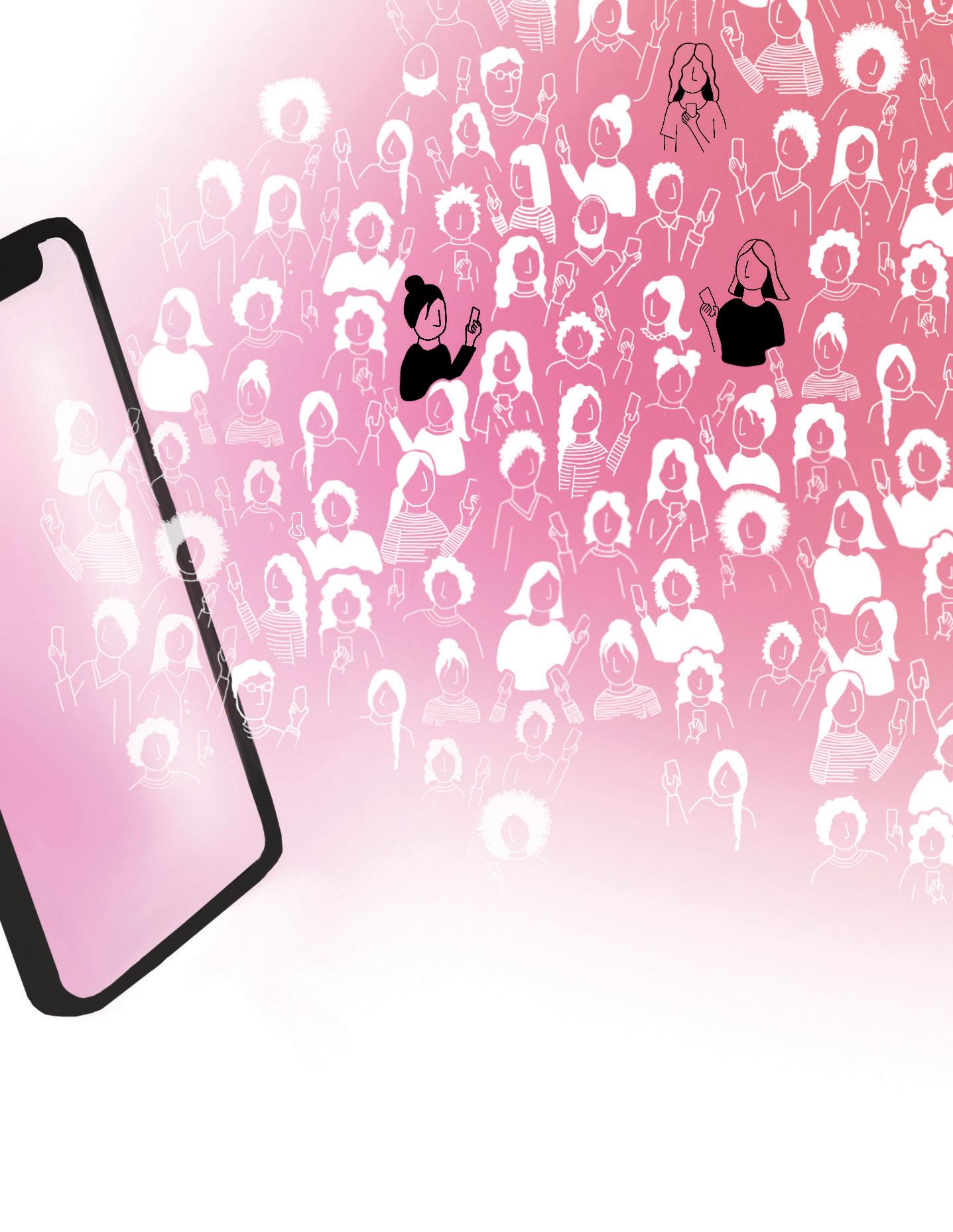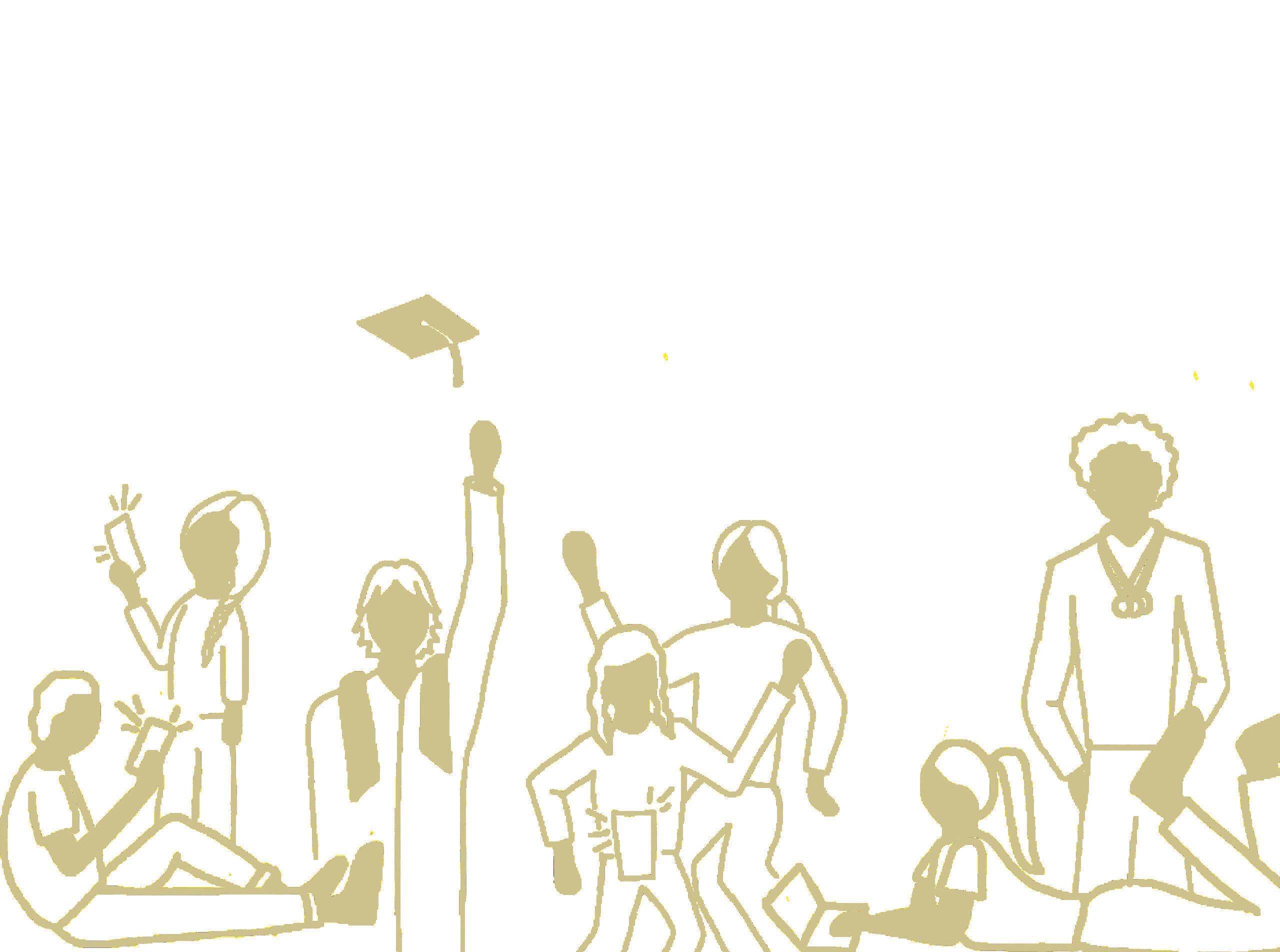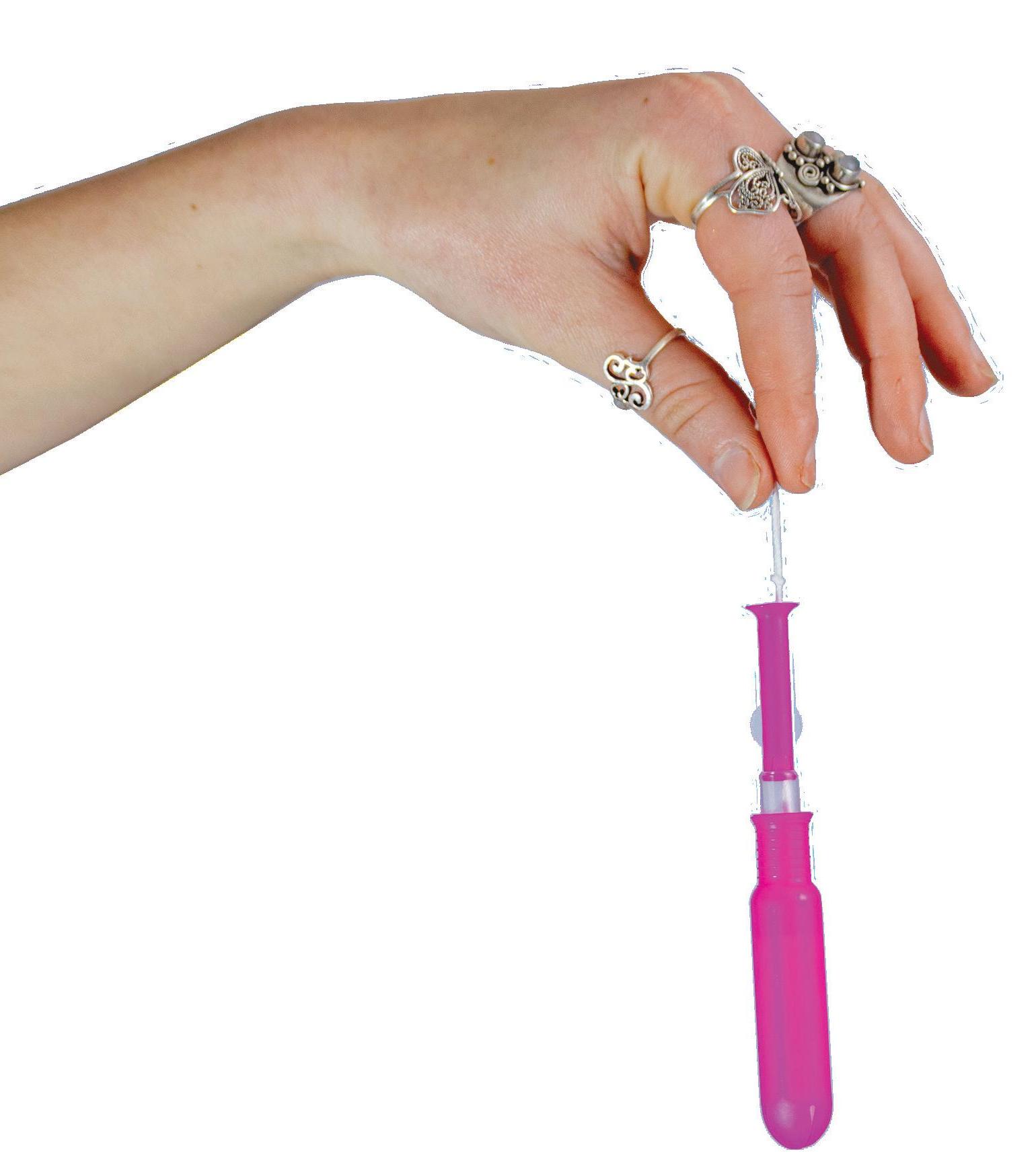
11 minute read
Love at First Swipe
The search for love has always been an uncertain, scary thing. As dating goes virtual, is the chance to find that connection only growing slimmer? We threw ourselves into the world of mobile dating and now we’re here: vulnerable and exposed, sharing just how that virtual landscape treated us. Illustrated by Bella Davies
Looking for Love in All the Swipe Places
Advertisement
By Jewel Turner
Since dating apps are becoming one of the biggest ways to meet potential significant others, they’re something people love to hate. But for some of us, dating apps are something we hate to love. As someone who’s an idealist, I’ve downloaded the most popular dating apps (and deleted them…and downloaded them again) and have noticed the most common issue about them: no one knows what they want. On one hand, people genuinely aren’t sure of what they’re looking for when they’re using dating apps. On the other, they do know but are too afraid to say it.
Being that I’m an ex-dating-app-obsessed person, I knew what I was looking for when I was searching for “the one” (and yes, I really did just say “the one”). It sounds silly to admit out loud, but I am an optimist; I would use apps to try to find someone to date. I wanted a relationship—my only issue was that I was hardly successful at it (cue my three—or was it four?— failed relationships). When it comes to dating, I’m extremely picky, and even terrified of possibly falling for someone. I do know, however, there are many others who feel differently and view dating apps as “not that deep”—including 22-year-old Ashlyn Norris. I’ve known Ashlyn forever, and I know if her spunky attitude can shine through a screen and get her a relationship (or several), then anyone’s can.
“I’ve dated three guys non-exclusively and four exclusively [from dating apps]. None of them lasted more than two months though,” says Ashlyn. She had been stuck in the cycle of downloading and deleting apps for three years. “Let’s be real: the first time I downloaded Tinder, I was just being an attention seeker. I wasn’t actively looking for anything.” Ashlyn has moved from California to Oregon to Idaho all within the past few years, so naturally she didn’t really want anything more than possibly someone to talk to. She says that most of the men she matched with pretended to be interested in pursuing a relationship with her, but they really just wanted sex. “Tinder and Bumble both seem to promote hookup culture, so I decided to download Hinge since it had more of a reputation of being for people who preferred relationships.” Through Hinge, she met her current boyfriend, Nate.
Though Ashlyn has had many successful experiences using dating apps, she admits it’s easy to get caught up in the gamification of it all—because with all of the constant swiping, a dating app is exactly like a game. “When you’re on a dating app, you forget who you actually are because you’re trying to get someone else’s attention,” she says. Ah, one of the many pros of online dating: you can be anyone you want.
On apps, it’s much easier to exaggerate all of the best parts of yourself. David Markowitz, an assistant professor at the University of Oregon’s School of Journalism and Communication, has done a lot of research on how this type of deception comes into play in online dating. “I think deception plays a really important role in of the that initial interaction [on dating apps]. Some people expect some level of deception in online many dating,” he says. To back this up, he mentions the Self-Presentation Hypothesis, “which refers to the notion that people essentially are lying just a little bit to make themselves look more interesting [and] attractive.” Although it’s clear we do this online, Markowitz says that people also do it in face-to-face interactions, by wearing makeup or putting on shoes with more height to them, so apps aren’t the only place people put up a front. He says that when it comes to dating apps, “people want to achieve a certain goal… and that’s to find someone, whether that’s a onecan be night stand, or a long-term relationship.”
Although I feel a bit exposed by Markowitz’s expertise, everything he says is completely relatable. I’ll be the first to admit that I’ve definitely used apps by only highlighting my best qualities. Has it gotten me anywhere? Nope. I’m still single. But does it have the potential to find me “the one”?
I’ll take my chances.
Confessions of an Ex-Tinder-Shamer
By Erin McMahon
Approximately two glasses of red wine deep, Riley has propped up her phone against the bottle, scrolling through Tinder. “Left, left, left, right, left,” we joke, rhythmically mimicking military officers as she swipes through potential suitors. Riley is one of my best friends at college, 21 years old and thriving. Post break-up and she’s only had the app for a week, getting plenty of messages and then some.
I, on the other hand, pride myself on having never downloaded a dating app. But, to be frank, it’s been a solid two years since I’ve had a boyfriend. I hate to say it, but Tinder’s starting to look not so bad after all.
I’ve found there’s somewhat of an underlying sense of shame that is associated with the use of dating apps. We’re all evolving into creatures of the night; our phones showing us the path to our next hookup or, perhaps, a future significant other. Next thing you know, a friend asks you the world’s most daunting question: “How’d you guys meet?” Your brain yells, “Tinder!” The inner voice of shame, however, rushes to intervene. “Oh, just at a party one night,” you respond.
Why should we feel shameful for taking advantage of technological advances? Right now, with just a few similar taps and swipes, just about every kind of food under the sun can be on its way to your front door in a matter of minutes. When you think about it, finding your next relationship isn’t really that much different.
My friend Lauren met her current boyfriend, Hunter, through Tinder, but she’d never tell you that. They matched on Tinder, but never messaged. Weeks later he ended up direct messaging her on Instagram. She and Hunter knew each other before all of these little online interactions.
In the game of mutual friends, we’ve all “heard of each other.” Tinder just made things more accessible for them to break the ice. “To be completely frank I was just bored,” says Lauren, referring to her decision to download Tinder last summer. Structured like a deck of cards, Tinder is typically treated like any other pastime. So, although you might claim not to have “games on your phone,” if you have Tinder or Bumble you might as well.
Five months into their relationship, Hunter and Lauren have deleted Tinder from their phones. “I knew I wasn’t going to have Tinder forever,” she says. “I really didn’t expect anything to come of it, though.” I guess they do say love happens when you least expect it. So, if Tinder has a way of drawing people to each other, why do we stigmatize it?
As a member of Generation Z, I think it’s safe to say we all believe we’re the world’s busiest people. Given that mindset, as well as our less-than-healthy obsession with social media, the rise of dating apps makes complete sense. They incentivize non-traditional interactions creating an inclusive environment where people can simply put themselves out there. And yet, we continue to Tinder-shame people, even when it’s simply the direction in which the world is moving. So, while I, too, haven’t learned to embrace this shift whole-heartedly, I’m warming up to it.
We have to be honest and own up to Tinder for the role it plays in our lives if it’s going to become a part of our cultural regimen. Sure, you can hide the mishaps and embarrassing stories, but at least taking ownership of something you made the decision to download on your phone is a good start. The shame only exists because it’s different from what we were taught. It’s also something our generation invented.
Sweating or Swiping?
By Camryn Privette
I’ll be the first to admit it: I was a total dating virgin when I arrived at college. I never had a serious enough relationship in high school that I’d cry about in my diary or to my parents. I had a few flings here and there, but when it came to commitment, I had no idea where to even start. So, when I arrived on campus, I did what everyone else my age in the UO dorms did: every weekend I went to a different sweaty fraternity live-out basement party where liquid encouragement was 100% necessary to actually “enjoy” the night. I’d imagined I’d meet “the one” at one of these parties; in the sweaty madness our eyes would meet from across the room, and everything would fall into place.
That route to romance was better than the alternative: Lying in bed flirting on a dating app with some guy I’d never seen with my own two eyes.
Now as a senior, however, I wonder if I really maximized my ways of meeting a significant other by only going to parties and not looking for connections elsewhere—like my phone. Dating apps never appealed to me because I’d had luck meeting people face to face.
OK, I admit I downloaded Tinder once (definitely twice). And, sure, I admit swiping curiously to see who from our school was using it. But in no way did I ever consider dating apps a place to find a serious relationship; if anything, I believed they strictly promoted hookup culture. If I ever wanted to change my perspective of dating apps, I needed to talk to someone who found a long-lasting relationship and not just a one-night stand.
Luckily, my curiosity led me to a 28-year-old Eugene local named Hillary Falburn who met her now-husband on a dating app six years ago. Falburn had only been on the OkCupid app for two weeks when she hit it off with a guy named Nik. “We started talking the first week I made a profile, and his messages were really genuine, so we met the next day. We spent two and a half hours together, and we could’ve spent the whole day talking,” says Falburn. Falburn says their relationship progressed quickly; the spark had been there ever since those first messages.
I walked away from our conversation feeling that maybe, after all, deep connections were possible to form over the phone.
After this discovery, I’ve come to the conclusion that being shown affection through the apps is really the same as meeting someone in a sweaty basement. After all, having used Instagram and Snapchat for years, I know what it feels like to be shown affection online—whether it’s a comment on a recent picture, or responses to a story I’ve posted—it feels amazing because I feel noticed. So, I can only imagine the feeling of skyrocketing confidence as a result of someone expressing interest in you from a carefully selected profile picture.
All it really boils down to is what a lot of people who are single or looking for someone want most: to feel wanted by another person.
My perspective on dating apps changed for the better because I realized it doesn’t necessarily matter if the sparks are flying face to face or over the phone. Each time some type of emotional connection is present, and it’s all really the same. Dating apps may seem odd to many, just like it once was to me. But look at it as another way to maximize your potential of meeting someone special—and you’re just swiping, not sweating.










